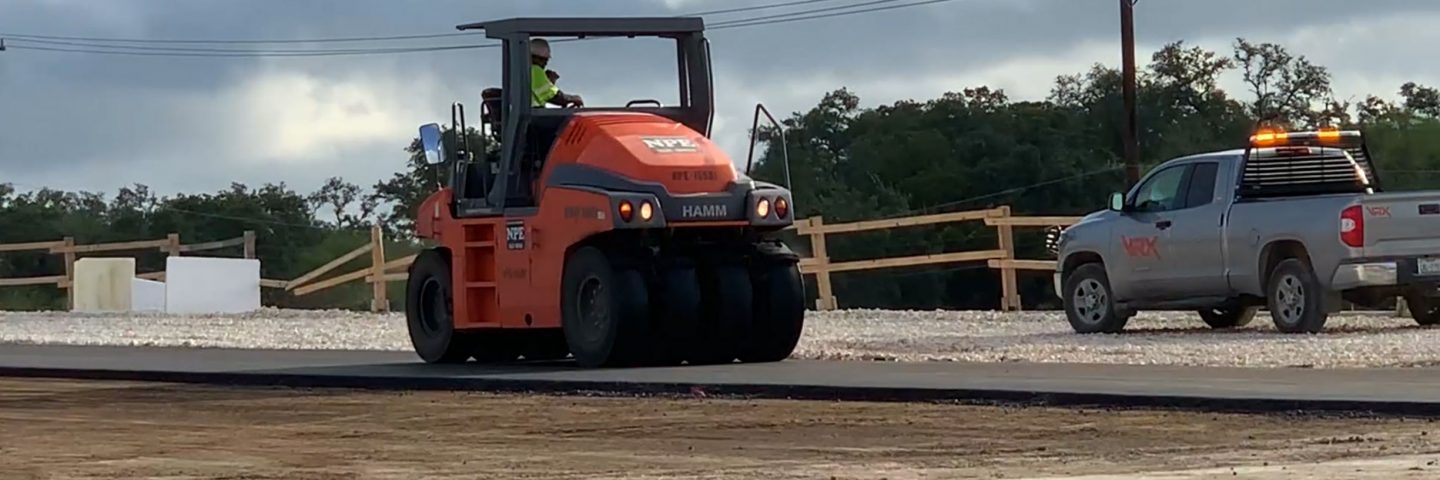Hot Mix Asphalt: Redefining Road Building Specifications
Warm Mix Asphalt (HMA) is significantly altering the landscape of roadway construction methods, setting new performance standards and improving sector criteria. Hot Mix Asphalt. This innovative product's capacity to boost roadway durability, endure heavy lots, and reduce upkeep prices has gathered attention from professionals worldwide. Its effect on framework advancement and environmental sustainability has motivated a change towards its extensive adoption in building jobs. The ramifications of HMA in redefining road building and construction standards are profound, offering an engaging case for a more detailed exam of its transformative abilities in modern design techniques.
Advantages of Warm Mix Asphalt
The effectiveness of utilizing Hot Mix Asphalt in road building projects is unequaled due to its toughness and cost-effectiveness. Warm Mix Asphalt (HMA) uses various benefits that make it the recommended option for leading roads. Among the vital benefits of HMA is its ability to hold up against heavy website traffic loads and extreme weather, ensuring lasting efficiency. This durability reduces the demand for frequent fixings and maintenance, resulting in expense financial savings for task owners and taxpayers.
Furthermore, the smooth surface area coating of HMA lowers rolling resistance, boosting fuel efficiency for cars and reducing general transportation expenses. The quick building time related to HMA tasks better boosts its cost-effectiveness by lowering labor and website traffic disturbance expenditures - Hot Mix Asphalt. Additionally, the recyclability of HMA products makes it an ecologically sustainable choice for road construction jobs.
Durability and Durability of HMA
With a proven track document of standing up to heavy web traffic lots and severe climate conditions, Hot Mix Asphalt (HMA) stands out for its remarkable long life and sturdiness in roadway construction jobs. By giving a secure and smooth riding surface for drivers, HMA lowers wear and tear on lorries and boosts overall roadway security.

Environmental Advantages of HMA
Significantly, road construction jobs are transforming to Hot Mix Asphalt (HMA) for its substantial ecological benefits. HMA look at these guys is a sustainable paving material that provides a number of benefits in regards to ecological impact. One of the essential benefits of HMA is its recyclability. The material can be reused and reused go to these guys several times, lowering the demand for virgin products and lowering the quantity of waste sent out to land fills. This reusing process likewise helps save natural sources and lowers energy consumption connected with manufacturing new asphalt.
Additionally, HMA pavements are known for their capacity to minimize stormwater drainage. The smooth surface area of HMA roadways enables rainwater to flow successfully right into the ground, minimizing erosion and reducing the risk of flooding. This can have a positive effect on the bordering environments by maintaining all-natural water circulation patterns and protecting the top quality of water bodies.
HMA in Road Building Projects

Road building tasks profit from HMA's quick Resources building time, permitting for faster conclusion of roads and minimizing web traffic disturbances. Overall, incorporating HMA into roadway building and construction projects leads to long-lasting, economical, and eco-friendly streets that satisfy the needs of modern-day transport systems.
Influence of HMA on Infrastructure
The substantial use Warm Mix Asphalt (HMA) in roadway building and construction tasks substantially influences the overall infrastructure quality and long life. HMA gives a smooth and long lasting driving surface that enhances roadway security by decreasing accidents and minimizing car wear and tear. This, in turn, results in reduce upkeep costs for both automobiles and the roadway itself. In addition, HMA's versatility allows it to adjust to varying weather conditions, protecting against splits and pockets that can jeopardize the structural stability of roads.
Moreover, making use of HMA in framework projects adds to ecological sustainability. HMA is a recyclable material, which indicates that old asphalt can be recycled in new road building and construction, reducing the requirement for virgin products and minimizing waste. This not just preserves natural resources yet likewise lowers the carbon footprint related to roadway construction. To conclude, the influence of HMA on framework is profound, advertising safer roads, cost-effectiveness, and ecological duty in roadway construction jobs.
Conclusion
In conclusion, Hot Mix Asphalt (HMA) has shown to be a game-changer in road construction standards due to its exceptional effectiveness, durability, and cost-effectiveness. With its ability to endure rush hour lots and rough weather, HMA uses a resilient and trustworthy option for facilities projects. Its smooth riding surface, resistance to fracturing, and convenience of upkeep make it a top option for improving road safety and lowering ecological effect. HMA establishes a new benchmark for sustainable and top quality facilities development.
With a tested track document of enduring hefty traffic tons and harsh weather condition problems, Warm Mix Asphalt (HMA) stands out for its outstanding longevity and toughness in road building tasks.Utilizing Warm Mix Asphalt (HMA) in roadway construction jobs offers many benefits in terms of resilience and sustainability.Roadway building and construction projects profit from HMA's fast construction time, enabling for faster conclusion of roads and minimizing traffic disturbances.The considerable usage of Warm Mix Asphalt (HMA) in road construction tasks significantly influences the general framework quality and long life. In conclusion, the impact of HMA on facilities is extensive, advertising more secure roadways, cost-effectiveness, and ecological responsibility in road construction projects.